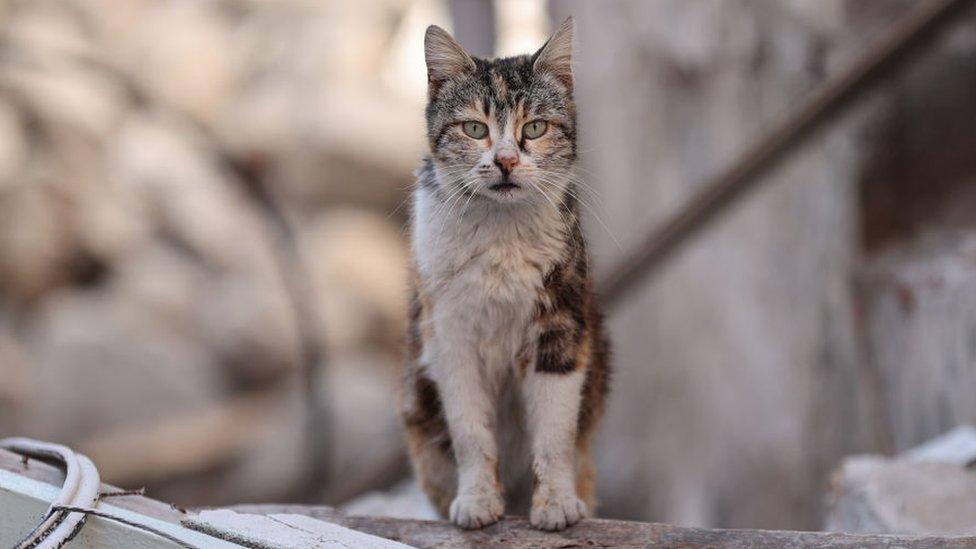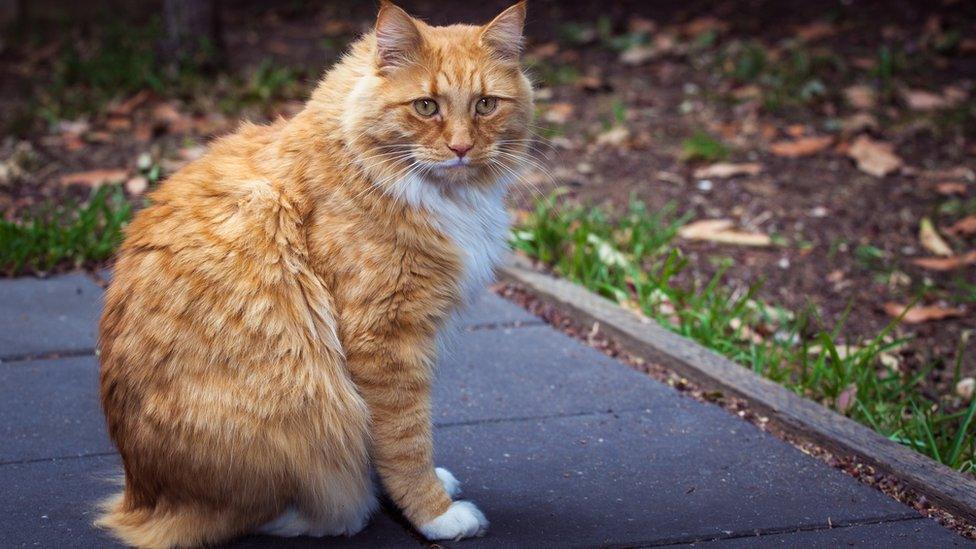New Zealand feral cat-killing competition for children axed after backlash
- Published

Organisers of an annual hunting competition in New Zealand came under fire when they announced an event for children to hunt feral cats
A children's cat-hunting competition in New Zealand has been cancelled following backlash against the event.
Organisers of an annual hunt were criticised after announcing a new category for those aged 14 and under to hunt feral cats.
The animals are considered a pest and a risk to the country's biosecurity.
Youngsters were told to not kill pets, but they were otherwise encouraged to kill as many feral cats as possible for a prize.
The child who killed the most between mid-April and the end of June would have won NZ$250 (£124; $155).
The event drew immediate condemnation from animal welfare groups.
On Tuesday, the New Zealand's Society for the Prevention of Cruelty to Animals said it was relieved the "children's category which involved shooting feral cats" would not go ahead.
A representative argued that children, along with adults, would not be able to differentiate between "a feral, stray or frightened domesticated cat", according to AFP news agency.
There were fears that this would mean house cats would be unintentionally killed.
"We should be teaching our tamariki [children] empathy towards animals, not handing them the tools to kill them," a spokesman for the animal welfare charity Safe told local media outlet 1News.
The event had been announced as part of a June fundraiser hunt for a local school in North Canterbury in the South Island, a largely rural area of New Zealand where hunting is popular.
The competition each year typically sees hundreds - including children - compete to kill wild pigs, deer and hares.
Organisers of the North Canterbury Hunting Competition announced the cancellation of the cat event on Tuesday, saying they had received "vile and inappropriate emails".
"We are disappointed and apologise for those who were excited to be involved in something that is about protecting our native birds, and other vulnerable species," the group wrote on Facebook.
They also pointed out that anyone who participated in their hunts are required to abide by firearms and animal welfare laws.
The post received more than 100 comments from users, many of whom defended the event. People said the hunt could have been a "controlled cull".
"If only people knew the damage wild cats cause around the place," one local wrote.
"They also [have] an effect on our farming. Wild cats carry diseases... we will just keep shooting them for as long as we keep seeing them," she concluded.
It is estimated that there are 1.2 million domestic cats in New Zealand and more than double that number of feral cats.
Measures to control the latter population are the subject of heated debate in New Zealand, where the animals are a major threat to native species.
New Zealand's largest conservation group, the Royal Forest and Bird Protection Society, has estimated that feral cats could be responsible for the deaths of as many as 1.1 million native birds every year, as well as tens of millions of non-native birds.
One biosecurity expert, Dr Helen Blackie, told Radio New Zealand that feral cats were responsible for the extinction of six bird species, as well as the decline in populations of bats, frogs and lizards.
They are also known to carry the parasitic infection toxoplasmosis, a disease that has had a significant impact on New Zealand's sheep industry.
Dr Blackie also said that because feral cats are not officially classified as pests in Canterbury, there are no measures in place to monitor or control them.
Related topics
- Published11 March 2023

- Published24 May 2018
